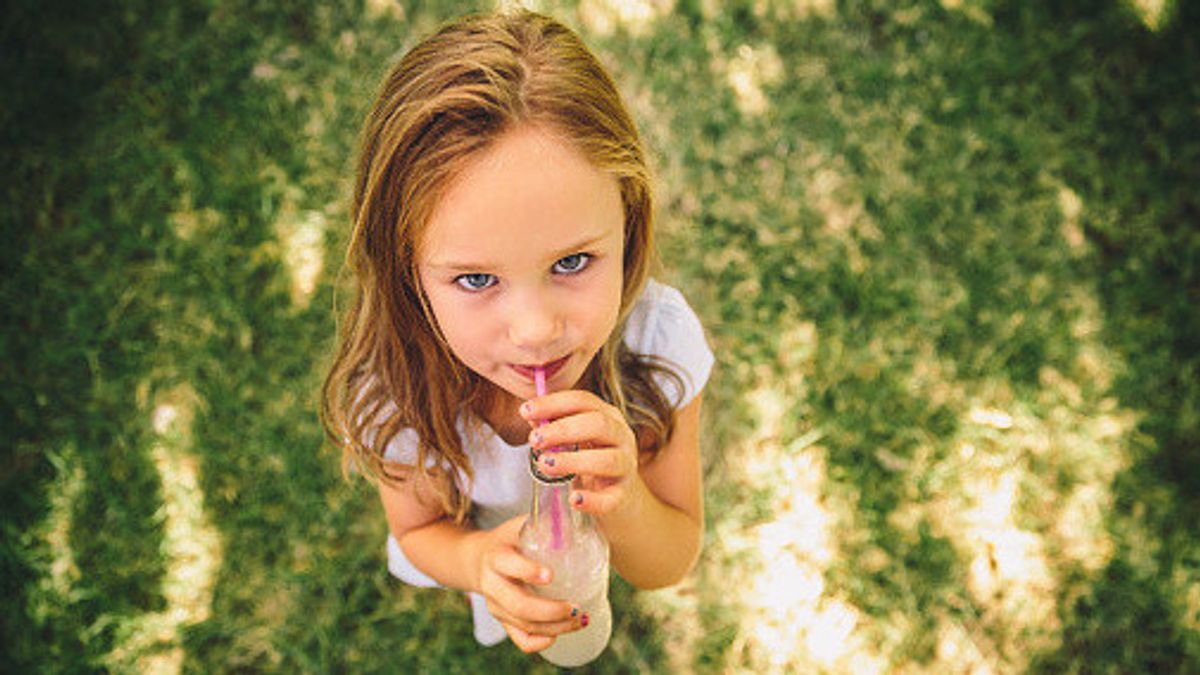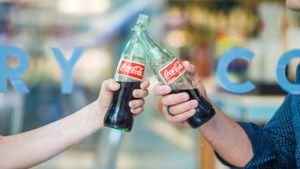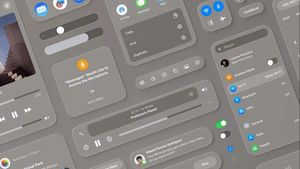YOGYAKARTA – Having attractive packaging, carbonated drinks also have a fresh taste. Carbonated drinks are soft drinks. Usually called a bubbly drink because it contains gas. This drink is often purchased in cans or bottles. Because it is very easy to grip, including the hands of children, is this drink safe for them to drink?
According to pediatric dietitian and Ancademy of Nutrition and Dietics (DAN) spokesperson Amy Reed, MS., RD., CSP., LD., carbonated water can be part of a healthy diet for children when compared to drinking sugary sodas. But generally carbonated water is filled with flavours, sodium or salt, and other minerals. Some also contain caffeine and energy-boosting ingredients. If judged based on its effect on health, carbonated water has both advantages and disadvantages. For small children, this drink is bad if consumed in large quantities.
The advantage of carbonated drinks is that they offer the pleasure of drinking drinks without sugar and calories, for example in the form of sparkling water. But in a different context, sugary drinks with carbonated water are a driver of obesity among children.
“My advice is to think of sparkling water as a treat,” says Mary Hayes, MD., a Chicago-based pediatric dentist.

If consumed occasionally, no problem. But if you often drink this type of drink can cause problems. The bad effect is not only on dental health, but also has a negative impact on nutrition, bone strength, and digestive health. According to doctor Jonathan Shenkin, a pediatric dentist in Augusta, Maine, sparkling water does not offer any nutritional benefits. If often served to children, it is impossible to replace milk, lean protein, fruits, and vegetables.
When toddlers drink, explains Reed, carbonated water can manipulate satiety. This causes them to have a decreased appetite to eat more nutrient-dense foods.
“Carbonated drinks cause air to be swallowed, which causes gas. Each child may respond differently. If you're going to complain of increased gas, bloating, or excessive burping, then your intake of carbonated water may need to be reduced," advises Reed.
VOIR éGALEMENT:
Parents also need to identify foods that their children are allergic to. So find out what flavors are contained in carbonated drinks so as not to trigger an allergic response in children.
According to the recommendations of the American Heart Association, children under 5 years should not have drinks that contain added sugar, caffeine, and artificial sweeteners. That is, make sure children are of sufficient age and endurance before giving carbonated drinks. In addition, the limit of drinking carbonated drinks depends on age. Reed explained, a child may need to be limited to drinking between 4-8 ounces per day. But not too often so as not to cause tooth decay, stomach ache, and bad eating habits.
The English, Chinese, Japanese, Arabic, and French versions are automatically generated by the AI. So there may still be inaccuracies in translating, please always see Indonesian as our main language. (system supported by DigitalSiber.id)













